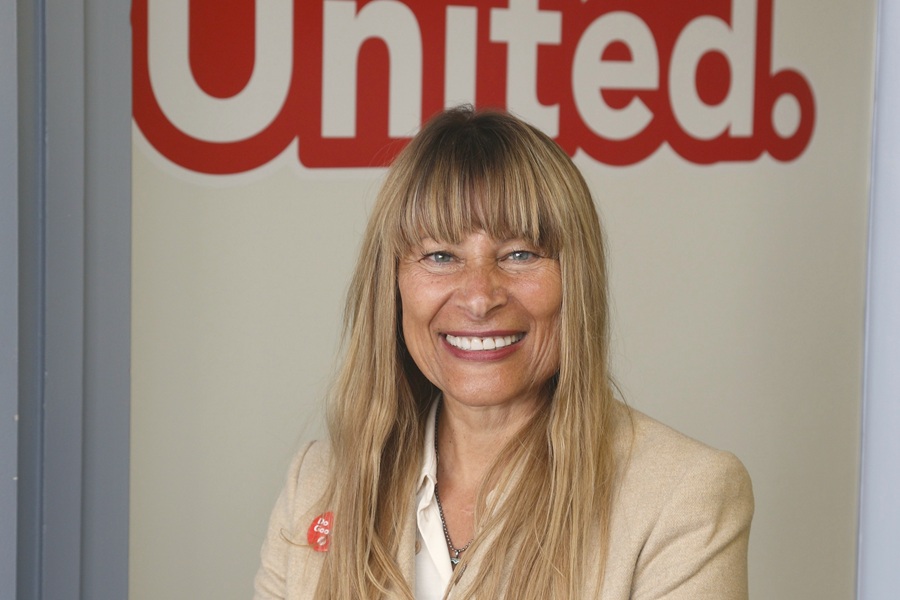Beyond profit
Three years ago, a quest for meaningful work and a desire to contribute to community led Michelle Foote from the banking sector to the United Way. Today, the challenges have never been greater
A CAREER MOVE from corporate banking to nonprofit philanthropy might seem like a 180-degree pivot, but Michelle Foote doesn’t see it that way. As an active volunteer for decades, with one foot firmly planted in the corporate world and the other in her community, she’s been involved in an array of local initiatives — from being the ‘reading mom’ at her children’s school to brightening the holidays for homeless women by organizing the annual holiday gift-giving Shoebox Project and many more.
Click here to view this article in magazine format
So, when the opportunity to move into the position of director of philanthropy and donor services at United Way Elgin Middlesex recently presented itself, Foote viewed it as an ideal opportunity to mesh her business skills with her desire to build a better world, ideally one where no one is hungry or homeless.
Story Continues Below
After graduating from Ivey Business School in 1988, Foote jumped into the banking sector, working mainly in commercial finance. She embraced the concept that banks should be good corporate citizens, and that led her to opportunities to volunteer with both the London Community Foundation (LCF) and the United Way.
“Sitting on the London Community Foundation’s social finance committee, that’s where I saw the magic,” she says, reflecting on the impact LCF funds have had on the community. Her work on the allocations committee at United Way, where she was involved in determining where funds should be directed, reinforced that sentiment. “I could take what I learned at school and apply it to what I’m passionate about,” she says.
“Community needs are up, and donations are down. Businesses now are operating in such a different environment” — Michelle Foote
Foote decided to bring those business skills to the United Way full-time three years ago, when she joined the organization as director, finance and operations; she moved into her current position earlier this year.
She doesn’t mince words when it comes to the difficulties facing the nonprofit sector in 2025. “It’s a challenging time to be in this line of work, Foote says. Everything from job market volatility to fluctuating donor contributions have left many nonprofits in a tenuous financial situation, forcing them to adopt a wait-and-see approach to funding sources. At the same time, ongoing political and economic uncertainty is taking a toll on the sector, and the cost of everything — employee salaries and benefits, fuel, rent and insurance — continues to rise, making it difficult for organizations to plan and operate effectively.

“Community needs are up, and donations are down,” Foote says, noting that the full impact of the pandemic has been felt over the past couple of years, and for the first time the United Way has not been meeting its campaign goals.
“Businesses now are operating in such a different environment,” she says. “We’ve seen companies restructuring, some corporate offices move out of London, strikes, shut-downs — all of that has really impacted donations.”
In addition, the trend to remote and hybrid work has put a strain on the United Way’s special event fundraising. “Our donor base for payroll giving has typically tended to be older employees, and many of them have retired,” Foote says. “Some companies no longer have the flexibility to participate in the Sponsored Employee Program [where employees help to plan, implement, monitor and evaluate United Way’s annual Workplace Campaign].”
Story Continues Below
But through it all, Foote remains steadfastly optimistic that London-area businesses are committed to supporting the work that United Way does. “Generally, the community is giving what it can, and we want businesses to know that if they are looking for ways to give back, we can help with employee engagement that ties in with their corporate responsibility goals.”
But while the challenges are real, and the pressure is intense, Foote believes that with the right mindset, frameworks and commitment to strategic execution, nonprofits can emerge stronger, more agile and more impactful. Just as she continues to believe that most people, like her, are concerned about their neighbours and continue to want to help make the world a better place for everyone. ![]() KymWolfe
KymWolfe

